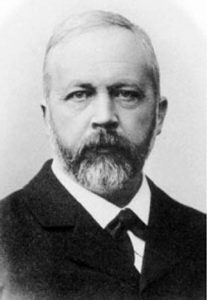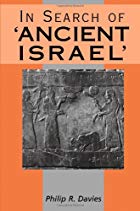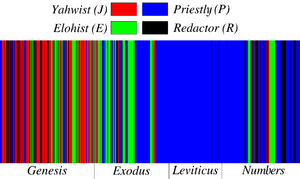Below is a revised version of a post I submitted to the earlywritings forum. It is the first in a series setting out the foundational arguments for the Old Testament books being written as late as only 300 years before Christ, no earlier. The case being proposed is that our earliest books of the Bible did not have a heritage traced back to Bronze Age times, not even as far back as the kingdoms of Israel and Judah — nor even the “Babylonian Captivity” of the Judeans who were transported to Mesopotamia by Nebuchadnezzar in the sixth century BCE. Rather, the proposition advanced here is that they were the creations of a time after Alexander the Great swept across “Asia” and just prior to the Hasmonean and Maccabean eras. The argument to be advanced is that the earliest books of the Bible originated in the Greek era, only a couple or so centuries before the Roman conquest and time of Jesus.
When we apply the fundamentals of historical methods as practised by historians in fields other than biblical studies we quickly see logical flaws at the heart of the conventional understanding that the sources for various biblical books (in particular the stories in Genesis and Exodus) go back as far as the times of David and Solomon.
Multiple sources and circularity
Several times I have engaged in the EarlyWritings Forum on the question of the how the Hebrew Bible came about over long centuries of accumulated writings and editings [i.e. the Documentary Hypothesis] and every time, it seems to me, the argument submitted to prove that the stories came about over long spans of time is the same: the evidence clearly shows us that different stories were combined into one. The classic illustration of this is the Flood story of Genesis. There can be little doubt that two different flood narratives are combined here. Sometimes the account says Noah brought in the animals two by two but in another place it tells us that there were seven of each kind! There are many more indicators to verify the point.
My response has been each time that I have no doubt that different sources were mixed to create the Genesis Flood account, but it does not necessarily follow that those different stories arose and came together over a long time period.
Think of it for a moment: An editor sees before him a story which says that the animals went into the ark two by two. That editor has in mind another story that he has acquired, one that says there were seven of each kind of animal. Now what is that editor likely to do if he wants to create a new single narrative? Would he be likely to keep the two by two account alongside the new one with the sevens? Or should we rather expect that he would delete the two by two references and replace them with what he prefers as the more valid story about the sevens?
What we have is a case of the editor deciding to combine details, even though contradictory, into one new narrative.
To me, that sounds like the editor had two different stories before him and he saw his role as being required to blend the two together, preserving the details of each, to create a single new authoritative story.
If that was the case, there is no reason at all to suppose that the Flood story as we have it is evidence of composition involving the accumulation of different sources over a long time span. It is no less reasonable to think that two interest groups created their own account and an editor was tasked with the job of making them one so that there was one narrative that all could respect as reflecting their own views. Such a project is conceivable as taking place from start to finish within months or even weeks, not necessarily centuries or even decades!
So how did the conventional notion of a centuries long evolution of the Bible come about? Biblical scholars, it is no secret to anyone, not even to themselves on the whole, do have interests that go beyond pure historical research. Even Julius Wellhausen, to whom we tend to attribute the modern notion of the “Documentary Hypothesis”, has been criticized for allowing his Protestant (anti-legalistic) bias to subconsciously influence his model of the “Documentary Hypothesis”. (The criticism has been directed at the widespread idea that “legalistic” texts were a late addition to the original “spiritual” and “prophetic” narratives found in the biblical canon.)
When hypotheses become facts
So much in biblical studies that passes for facts are actually hypotheses, or “theories” of a certain kind. But they are repeated so often it is hard to notice that they have no basis in the hard evidence. Look at this passage from Wellhausen:
With regard to the Jehovistic document [i.e. one proposed “early source” in the Bible], all are happily agreed that, substantially at all events, in language, horizon, and other features, it dates from the golden age of Hebrew literature, to which the finest parts of Judges, Samuel, and Kings, and the oldest extant prophetical writings also belong, the period of the kings and prophets which preceded the dissolution of the two Israelite kingdoms by the Assyrians. About the origin of Deuteronomy there is still less dispute; in all circles where appreciation of scientific results can be looked for at all, it is recognised that it was composed in the same age as that in which it was discovered, and that it was made the rule of Josiah’s reformation, which took place about a generation before the destruction of Jerusalem by the Chaldaeans.

That’s from
- Wellhausen, Julius. Prolegomena to the History of Ancient Israel (originally published 1882)
His assertion of relative dating is grounded entirely in scholarly consensus, not in the evidence itself. No doubt those scholars who make up the “consensus” believed they had serious evidence for dating the book of Deuteronomy to the days of King Josiah — but we will see that really they did not. They relied entirely upon “what the Bible says”.
There does happen to be archaeological evidence indicating that prior to the Hellenistic era Judeans and Samaritans had no knowledge of the biblical laws. I am referring to the finds in a Judean colony in Egypt, the Elephantine papyri. (I have not posted nearly enough about this find and what various scholars have had to say about it, but hope to make up for that lack very soon.) The Documentary Hypothesis, it has been pointed out by at least one scholar in the biblical field, might well never have got off the ground had the Elephantine remains — indicating that Persian era Jews knew nothing of the Pentateuch — been discovered earlier and had more time to gain traction and wider and more focused attention than it had before the time of Wellhausen’s work.
None of this is to say that biblical scholars are unprofessionally “biased” or “unscholarly”. Of course they are scholarly and their biases are generally known and admitted and taken into account. But their work tends to be picked up by others and over time taken for granted as fact.
Independent evidence is critical
The fact remains that there is no independent evidence that the OT was composed prior to the Hellenistic era. That datum alone does not prove it was a Hellenistic product. But it does at least allow for the theoretical possibility that it was created in the Hellenistic era, and given that our earliest independent evidence for a knowledge of the Pentateuch is situated in the Hellenistic era, it is entirely reasonable to begin with that era when searching for the Pentateuch’s origins.
It also is a fact that scholarship has only cursorily (by comparison) begun noting echoes of Hellenistic literature and thought within the Pentateuch itself. Those are facts. Another fact is that Documentary Hypothesis is not without its inconsistencies and problems – another point I can post about in more depth.
Those facts do not prove that the Pentateuch was created in the Hellenistic era. But they do at least make it possible to ask the question. It makes it all the more necessary for anyone proposing an earlier date to ground their reasons in supporting independent evidence of some kind.
The meaning of “Hellenistic”
The Hellenistic provenance of the Pentateuch does not deny any use of pre-Hellenistic literature or sayings or concepts. Hellenization even means a uniting of Greek and Asian cultures, not a replacement of one by the other. So one should expect in any Hellenistic era hypothesis for the Pentateuch clear allusions to non-Greek (i.e. local Canaanite and Syrian) sources. Yes, we can identify where passages in the Pentateuch are borrowed from ancient Ugaritic (Canaanite) or Syrian sources, but employing local literature does not contradict the Hellenistic era hypothesis for the Old Testament.
 The fateful year of 1992
The fateful year of 1992
My own understanding of the history of the scholarship in this area informs me that the floodgates to a more widespread acceptability in questioning the “deep antiquity” (pre-Persian era) origin of any of the OT books were opened by Philip R. Davies in 1992 with his publication of In Search of Ancient Israel. The irony was that Davies was only collating various criticisms and doubts about the conventional wisdom of “biblical Israel” that had been available to scholars for some decades. But by bringing these questions and doubts all together in one short publication (only about 150 pages of discussion) Davies’ work started something of an academic “kerfuffle”. [The above sentences are a paraphrase from memory of a review of Davies’ book but, apologies, I cannot recall their source.] Davies himself argued at length for a Persian era provenance of many of the OT books, but those who followed the evidence he set out could see that the way was also open for an even later period. Some scholars identified stronger links between the Pentateuch and Primary History (Genesis to 2 Kings) and Hellenistic literature than to anything earlier. One French scholar has even argued that the entire Primary History was composed by a priest in the Hasmonean era.
Davies certainly established the circularity of the arguments that much of the OT literature was composed in the times of King Josiah and the Babylonian captivity. He also brought together the archaeological evidence that indicates the very notion of “biblical Israel” (along with a kingdom of David and empire of Solomon) is as fanciful as King Arthur and Camelot.
The basics of historical inquiry
I opened this post with a reference to the methods of historians in nonbiblical fields. In short, those methods are nothing other than any journalistic or forensic or “common sense” method of trying to find out “what happened” — minus the theological provenance from which the quest is embarked upon. Start with what we know to be the most secure “facts” on the basis of collating independent evidence and working from there. Assuming that what we read in the Bible is a pathway to “the historical facts” is not safe: we need the support of independent evidence. Unfortunately, our cultural heritage has taught us too well that certain narratives about the past are “facts” (or at least based on facts) so that we find it very difficult to remove these from our minds when trying to see clearly the material evidence before our eyes.






 Niels Peter Lemche has a chapter in Lester Grabbe’s
Niels Peter Lemche has a chapter in Lester Grabbe’s